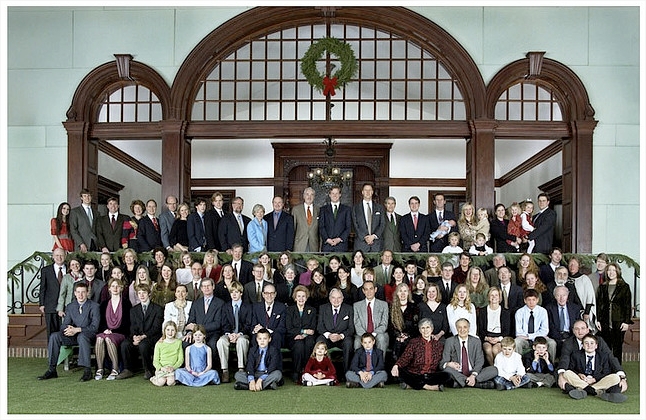Nuclear Families Need Larger Loyalties
October 4, 2012

"If the patriarchy were a bad thing, the very rich wouldnʼt keep it jealously to themselves."
by Olavo de Carvalho
Direct Link to Latest News
October 4, 2012

Michele said (October 5, 2012):
t's not only by social engineering that families are under attack, financial measures are a sure way to destroy the bonds that tie. In France, under the French Napoleonic Code for inheritance, the situation is dire.
When the head of the household - usually the father - dies, the property does not pass to his surviving widow but is instead broken up into equal portions amongst the children. There is a usufruit clause which will allow the widow to remain in the property for the rest of her life but this has to be in place before the death of the husband. What this means is that the widow will live in a "grace and favour" situation which is impoverishing, and the property on her death is then broken up amongst the surviving children. It is virtually impossible to avoid the breakup of the property by specifying who will get what, as the apportionment amongst the closest blood relatives is rigorously enforced by the Code and there is a tarif structure that decides the percentage of shares in the event of no children but other surviving relatives. There may be pressure on the widow to move if the children are ruthless enough to want their cut. Thus there can be no accumulation of wealth as at each death the property is further broken down into smaller amounts that can be passed down. Basically it is the State that decides who gets what.
Families like the Rothschilds presumably have enough wealth to circumvent these laws using loopholes or other instruments of which I am unaware but the majority of families in France have to abide by these heartless and draconian methods. Without property families cannot be strong. Inheritance laws and taxes are designed to bring down families who might otherwise build up wealth and strength.
Tracy said (October 5, 2012):
I've appreciated the site over the last several weeks, but this week's article on Patriarchy by Olavo de Carvalho
really struck a nerve. The picture at the header with the Rockefeller family portrait is so powerful, it's stunning.
Add to that the caption at the side " ..strong patriarchal extended family for them, gender-confused isolation and solitude for us".
Such a brilliant description of the horror that's gripped our country and it's families for the last century.
I'm very sensitive about this right now. I have a 22 year old nephew who's just fathered a child out of wedlock. His 16 year old brother has done the same. Yeah, 16. That's right. But the 22 year old is pretty bright. He understands that there's a global satanic elite, and that they're working to grind this country and its populations down.
But lately I've tried to get him to see that creating broken families is an integral part of that plan. I think he's starting to get it, but I'm desperately hoping he'll be moved to action - take responsibility for his new child and his mother. Maybe even marry her and create an intact family. That's my prayer right now. I'll be showing him this article as soon as I can.
Thanks to you and Sr. Carvalho for a finely written piece.
Henry Makow received his Ph.D. in English Literature from the University of Toronto in 1982. He welcomes your comments at
Mariel said (October 5, 2012):
This article is stunning. The picture is stunning. I think the author is on to the truth.
In the end, what fractures the family is economic (although emotions play a part). The Rockefellers hoard enough money to go around to everyone.
Most people don't have that luxury, and families become distant or fractious over money issues. It's true in my family on all sides. If there is no religious/ethical bond to hold things together in spite of economic woes, kaput.